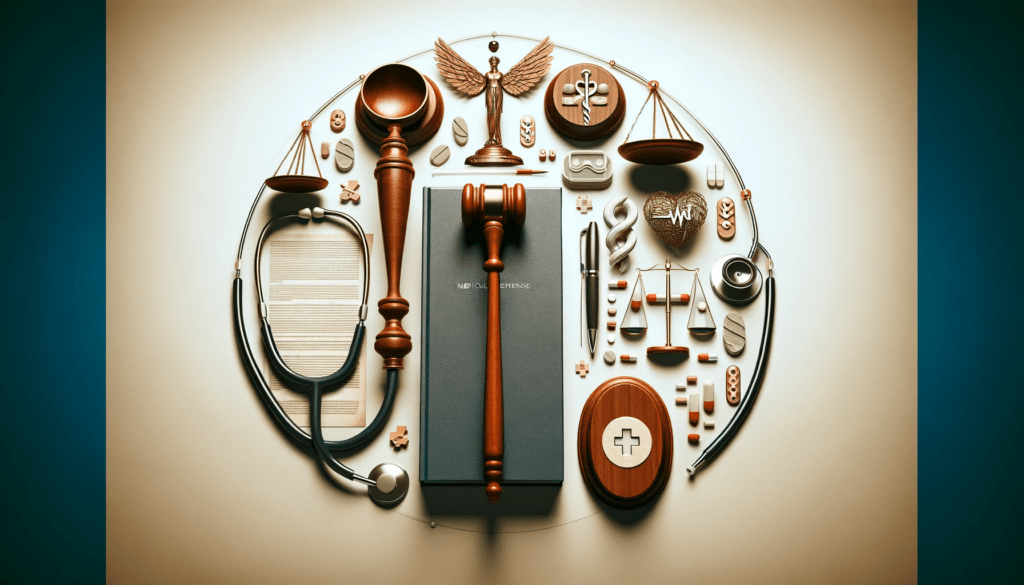Office of Professional Medical Conduct (OPMC)

The Office of Professional Medical Conduct (OPMC) is a division within the New York State Department of Health. Its primary role is to oversee and regulate the professional conduct of physicians, physician assistants, and specialist assistants to ensure they adhere to the highest standards of medical practice. The OPMC plays a critical role in maintaining public trust and safeguarding patient safety.
The OPMC investigates the complaints against physicians and physician assistants and if the allegations are substantiated, the OPMC prosecutes those cases. Here is the short outline of what the OPMC does and how the process works:
1. Investigation of Complaints
- Receiving Complaints: The OPMC receives complaints about medical professionals from patients, healthcare facilities, other professionals, and the public.
- Investigative Process: Once a complaint is filed, the OPMC conducts a thorough investigation to gather facts and determine if there is evidence of professional misconduct.
2. Prosecution of Misconduct
- Legal Proceedings: If evidence of misconduct is found, the OPMC can bring formal charges against the medical professional.
- Hearings and Trials: The OPMC conducts hearings where the accused professional can present their defense. These hearings are typically overseen by a panel that includes physicians and public representatives.
3. Disciplinary Actions
- Imposing Penalties: Depending on the outcome of the investigation and hearing, the OPMC can impose various disciplinary actions, such as license suspension, revocation, fines, or mandated retraining.
- Monitoring Compliance: The OPMC monitors professionals who have been disciplined to ensure they comply with the terms of their penalty and maintain proper standards of practice.
When medical professionals become subjects of investigations by the Office of Professional Medical Conduct (OPMC) it is extremely important to retain an experienced attorney immediately. Your medical license is too important to entrust it to a general practitioner or someone who is not really experienced in dealing with the OPMC. It doesn’t matter whether you are guilty of the allegations or completely innocent. The OPMC will rigorously investigate every single complaint, regardless of its merit, including anonymous ones. These investigations are thorough, and any misstep can severely impact the career of the professional involved.
At Norman Spencer, we have a proven track record of successfully protecting doctors in OPMC investigations. Our expertise and dedication ensure that your rights and career are safeguarded throughout the process. After almost twenty years of defending New York physicians and hundreds of successfully completed matters, there is nothing in your case we have not seen and are not prepared to fight.
If you received the OPMC investigation letter, do not waste your time and call us right away to discuss your case.
What Constitutes Professional Misconduct?
The New York Department of Health (DOH) identifies various behaviors and actions that qualify as professional misconduct. The DOH is aggressively investigating allegations of negligence and fraud or misrepresentation related to a physician’s medical license. Violations of public health rules, improper medical record-keeping, and misleading physician advertising can also lead to investigations.
The Office of Professional Medical Conduct (OPMC) handles numerous complaints against licensed physicians. Examples of potential misconduct include:
- Fraudulent practice or gross incompetence
- Promising that a treatment will result in a cure
- Practicing under the influence of drugs or alcohol
- Criminal convictions
- Working while impaired by a physical or mental disability
- Performing unauthorized medical procedures
- Practicing outside one’s area of qualification
- Filing false reports
- Practicing with a suspended license
- Harassment, abuse, or intimidation of patients
- Ordering unnecessary tests
- Abandoning or neglecting patients in need of care
- Sexual misconduct
- Financial or insurance fraud
These examples illustrate the wide range of actions that can be considered professional misconduct, emphasizing the need for physicians to adhere to strict legal and ethical standards in their practice.
How to Respond to an OPMC Investigation
OPMC investigations typically start with a complaint filed against a physician. If you discover you are under investigation for professional misconduct by the New York Department of Health (DOH), it is crucial to act promptly. An OPMC complaint is serious and demands immediate attention.
Many physicians only become aware of the OPMC when they receive a letter from an investigator. Ignoring this communication can lead to serious repercussions, including the summary suspension of your medical license. Failing to respond to DOH letters and not providing requested records is considered misconduct under state law.
The best response is to immediately consult with a New York OPMC defense attorneys at Norman Spencer Law Group PC who are experienced in handling disciplinary cases, even if you believe you have done nothing wrong. With your professional reputation and medical license on the line, securing skilled legal representation from the beginning ensures your rights are safeguarded throughout the investigation.
Understanding the OPMC Disciplinary Process
Investigation
When a complaint is filed against a physician or physician assistant, they must cooperate with the OPMC investigation, including providing requested documents. It’s crucial to have legal representation during this process to protect your rights.
Committee Recommendations
If the OPMC investigator finds enough evidence of misconduct, the case is reviewed by a three-member committee (two physicians and one layperson). The committee can recommend further investigation, formal charges, an administrative warning, or dismiss the case. If a physician poses an imminent threat to public health, the committee may summarily suspend their license. Insufficient evidence results in case closure.
Disciplinary Hearing
If formal charges are filed or a summary suspension occurs, a disciplinary hearing is scheduled. A new panel of two physicians and one layperson conducts the hearing. Both sides present evidence, and the physician can testify. Legal counsel represents both parties, submitting evidence and questioning witnesses. A settlement is possible at any time before the hearing.
Penalties
After the hearing, the committee makes a decision. If a physician is found guilty of misconduct, possible penalties include:
- License revocation, suspension, or annulment
- Mandatory training or education
- Censure and reprimand
- Fines up to $10,000 per offense
- Up to 500 hours of community service
For minor violations, a physician might receive a non-public administrative warning. However, censure and reprimand are published online. Probation with practice restrictions may also be imposed. Severe misconduct can lead to license suspension or permanent revocation. All disciplinary actions and suspensions are made public and reported to the National Practitioner Data Bank, New York State Physician Profile, the OPMC website, and possibly to licensing agencies and employers.
What to Do if Investigated by the OPMC
If you are under investigation for professional misconduct, contact an experienced New York OPMC defense lawyer immediately. Disciplinary actions can severely impact your reputation and career. Norman Spencer Law Group specializes in defending medical professionals in disciplinary hearings and aims to dismiss or reduce penalties from the OPMC.
OPMC officials use various methods to gather information, including subpoenas and interviews. Therefore, it’s essential to have an attorney who can thoroughly prepare you. You have the right to legal counsel at every stage of the OPMC process.
While you may be asked to interview with an OPMC investigator, this is not mandatory, and you should not do so without legal representation. A lawyer can help determine the best approach to the investigation. Agreeing to an interview without legal advice could lead to statements that harm your case. Additionally, false statements can jeopardize your medical license.
Norman Spencer Law Group works to resolve matters quickly, aiming for dismissal of the complaint or negotiating a settlement to avoid formal hearings. If a hearing is necessary, your OPMC defense attorney will present a strong defense to minimize consequences.
Top Reasons to Hire Norman Spencer Law Group for Your OPMC Case
1. Specialized Expertise
- Focus on OPMC Cases: We specialize in handling cases involving the Office of Professional Medical Conduct (OPMC), giving us in-depth knowledge of the specific regulations and procedures involved.
- Experienced Team: Our attorneys have extensive experience in defending medical professionals, ensuring that we understand the complexities of your case.
2. Proven Success
- Track Record of Wins: We have a history of achieving favorable outcomes for our clients, including case dismissals, reduced penalties, and successful negotiations.
- Client Satisfaction: Our positive client testimonials reflect our commitment to effective representation and exceptional service.
3. Aggressive and Strategic Defense
- Dedicated Advocacy: We fight vigorously to protect your rights, license, and career, working tirelessly to achieve the best possible outcome.
- Smart Strategies: Our attorneys use careful planning and thorough preparation to build a strong, customized defense for each client.
4. Comprehensive Legal Support
- Full-Service Assistance: We handle all aspects of your OPMC case, from initial investigations and hearings to appeals and beyond.
- Guidance and Support: We offer clear and supportive guidance throughout the process, ensuring you understand your options and next steps.
5. Reputation and Reliability
- Trusted Advisors: Recognized as a leader in OPMC defense, our firm is known for its reliability and professional integrity.
- Client-Centered Service: We prioritize our clients, providing personalized service and maintaining open communication to keep you informed and confident in our representation.
6. Preventative Guidance
- Proactive Measures: Beyond defense, we offer guidance on best practices to help prevent future issues and safeguard your professional standing.
Choosing Norman Spencer Law Group means working with a firm that has the expertise, success, and dedication needed to effectively defend your medical license and career. Contact us today to learn how we can assist you with your OPMC case.
